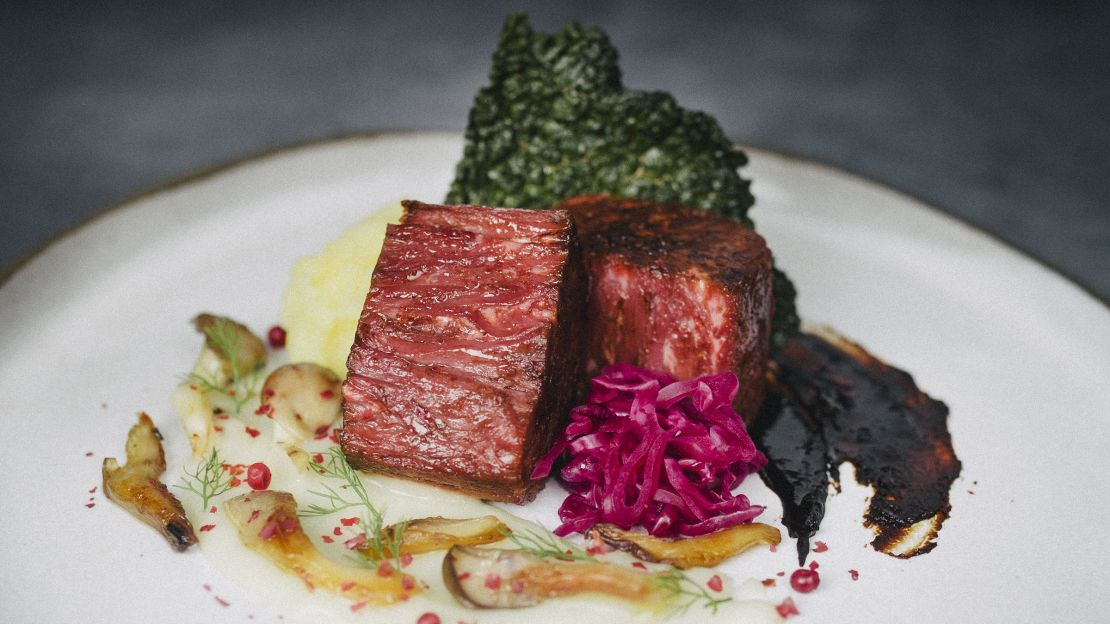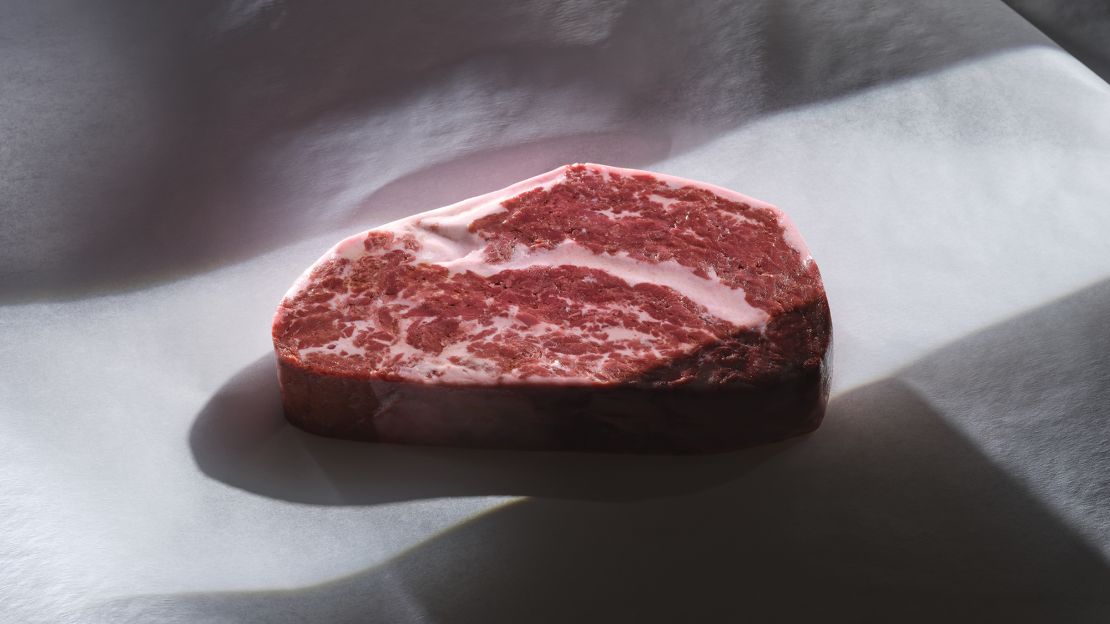When it comes to recreating the taste, texture and look of real meat, whole cuts have been called the “holy grail” of plant-based products. But producing them is not easy.
“Whole-muscle products are challenging to mimic because of their fibrous textures and integrated pockets of fat,” explains Karen Formanski, of the Good Food Institute.
With its plant-based prime cut steak, Juicy Marbles thinks it’s mastered the art. The Slovenian company’s filet mignon contains many ingredientsused widely in plant-based beef — soy protein concentrate, sunflower oil, beetroot powder and yeast extract, for example — but it claims to be distinct from other brands because of its marbling effect of protein and fat.
The production process involves nothing “more complex than heating and cooling,” says co-founder and chief brand officer Vladimir Mi?kovi?. He declined to reveal any more details.
Filets for all tastes
Based in Dom?ale, close to the Slovenian capital Ljubljana, the company was founded in 2019 by Luka Sin?ek, Maj Hrovat, Tilen Travnik and Mi?kovi?, by profession a microbiologist, a biotechnologist, an app developer and a restauranteur and brand developer respectively.
Sin?ek and Hrovat migrated from “building little bioreactors in Nutella jars and playing with proteins” in dorm rooms, says Mi?kovi?, to engineering a process that went some way to replicating the complex textures of meat.
The company has raised $4.6 million and its filet mignon was launched online in Europe and the United States earlier this year. Retailing for €30 ($30) for a pack of four 113g (4oz) filets, they’re not cheap, but have been bought by customers to cook at home, as well as restaurants looking for something that goes beyond plant-based burgers or sausages, says Mi?kovi?. It plans to begin selling in shops in the European Union, United States and United Kingdom in 2023.

The company first experimented with plant-based chicken breast and a rudimentary pork rib too, but now focuses on beef, says Mi?kovi?, “the most environmentally devastating product with the biggest (carbon) footprint.”
Cattle emit large quantities of potent greenhouse gas methane, and livestock consumes more than three quarters of the world’s soy — a crop linked to deforestation. Just 7% of the world’s soy — the main ingredient of Juicy Marbles’ product — is directly consumed by humans.
Plenty of other companies are selling whole cuts of plant-based beef. Japan’s Next Meats sells a skirt steak and short-rib while Meati Foods in the United States, Chunk Foods in Israel, Novameat in Spain and Meatless Farms in the United Kingdom all produce their own takes on beef steaks.
Industry headwinds

However, the plant-based meat industry is having a tough time. Shares of Beyond Meat (BYND) are down more than 75% this year, near an all-time low. A recent report from Deloitte said sales of plant-based meat were “stagnating” in the United States, citing inflation, consumers questioning the assumed benefits of plant-based alternatives and the possibility that the number of repeat buyers “may already have reached a saturation point.”
“The main challenge for the whole cuts subsegment is that volumes are still so low that you aren’t getting economies of scale,” says Malte Clausen, co-author of a recent report by the Boston Consulting Group on alternative proteins.
“As prices for input crops are increasing, that is likely to be a particular challenge for low-volume production lines. So even though plant-based required less inputs than animal-based, on the very short term it is still a challenge to reap the benefits.”
Mi?kovi? says he doesn’t want Juicy Marbles to be an “inaccessible premium product company,” and in November it will begin selling a tenderloin designed to feed the whole family. The price is yet to be announced.
“It’s going to be the strangest piece of plant-meat out there,” he says.
Achieving scale will help lower prices for the manufacturer and consumers and expand the product’s reach, Mi?kovi? believes. “This can be cheaper than animal meat, and it will be, eventually.”







